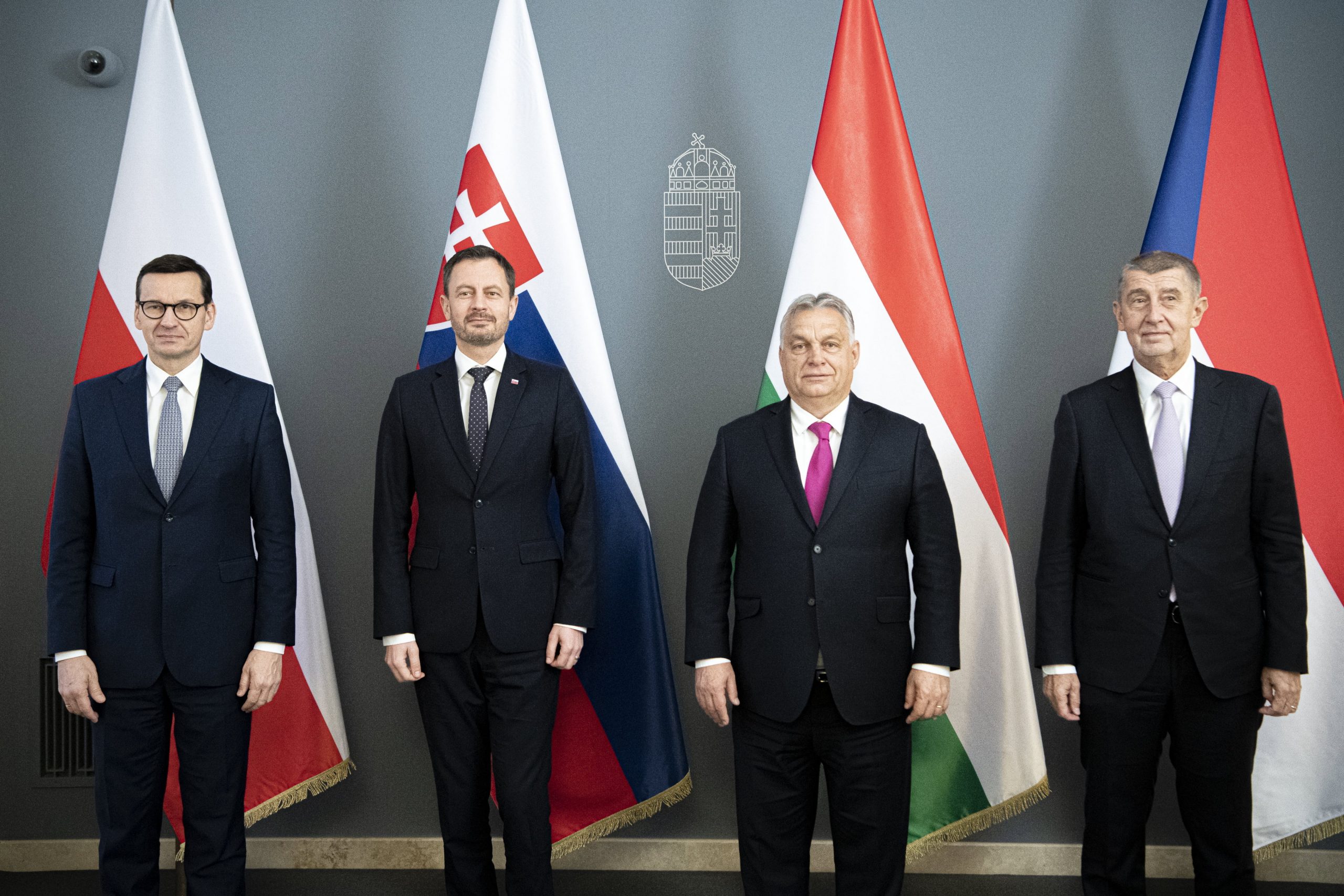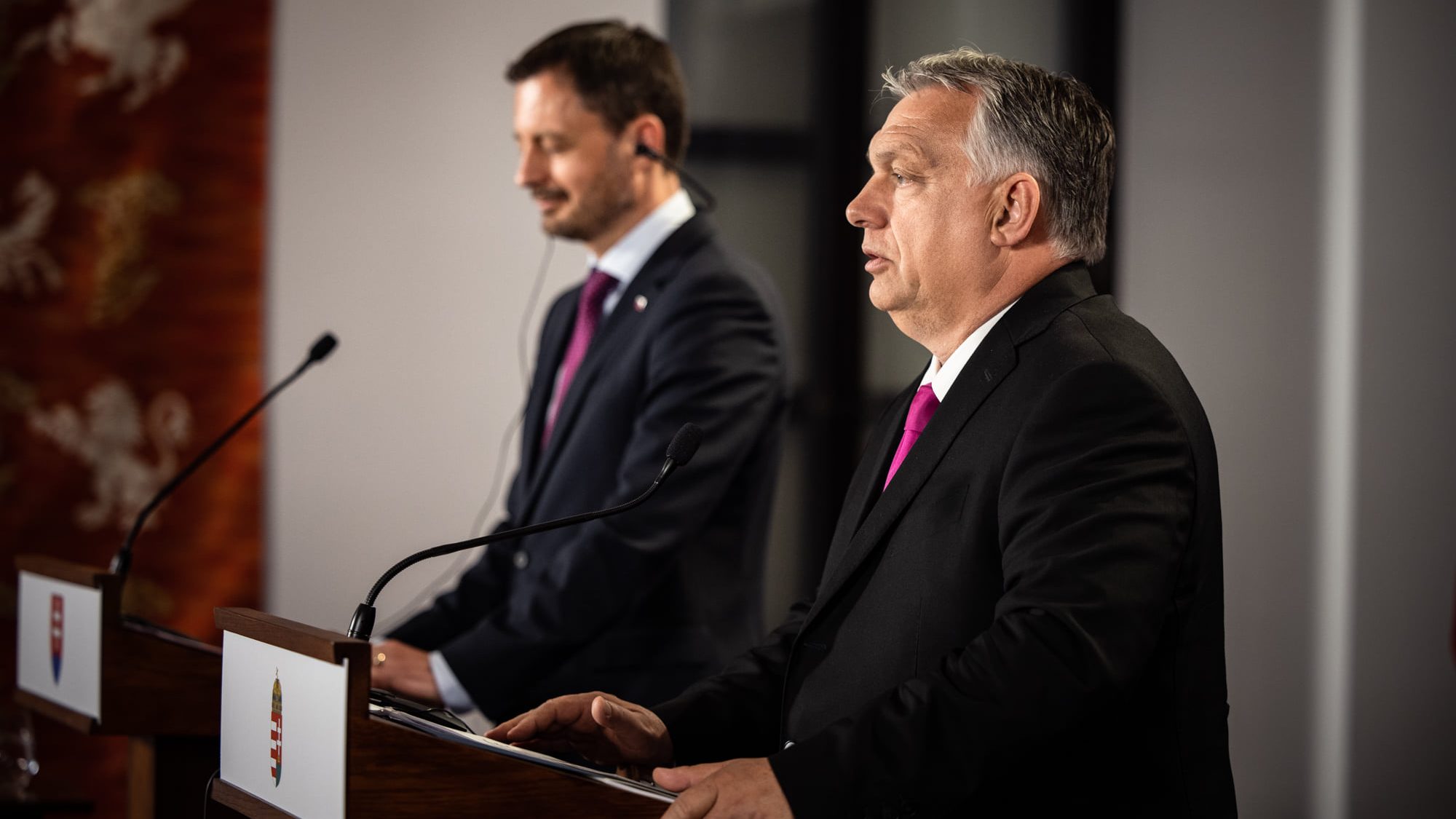
Good morning, Ladies and Gentlemen,
Today we have been the hosts for a delegation from the Party of the Hungarian Community. At the beginning of our talks we established that over the past few years the hard work of governance has absorbed a considerable proportion of the energy of the largest Hungarian governing party – and perhaps also that of the Christian Democrats. This is perhaps all to the good, as parties are elected in order to concentrate all their efforts on governing. At the same time, we needed to recognise the importance of a network of satisfactory relations between political organisations of Hungarian communities in the Carpathian Basin: not only with the Government, but also with political parties; the Government’s network of relations is not a substitute for inter-party relations. With this in mind, we wanted to clearly emphasise that in Slovakia, in Southern Slovakia, the partner organisation of Fidesz and the Christian Democratic People’s Party is the Party of the Hungarian Community: this is how it was, how it is, and how it will be. So in the future the centre of gravity of our political efforts, the compass for navigation among our partners, will remain unchanged. The essence of the meeting was our assessment of the situation of the Hungarian community in Southern Slovakia, and a review of: the demographic indicators and the development of the population pyramid; education and training statistics; economic indicators; and the issue of regional states of development. We came to the conclusion that reality falls far short of the opportunities.
We established that, in recent years, we have managed to build exceptionally good relations with the Government of Slovakia; the fruits of these efforts are beginning to ripen, but there are far more opportunities ahead of us than we have explored and exploited so far. As a result, the leaders of the two parties concluded that we shall propose to the Hungarian government – as there appears to be some overlap between the Fidesz negotiating delegation and the Hungarian government, and the Government will probably soon learn about this anyway – that we should make much more intensive use of the existing opportunities. We should enter into an agreement with the community of Hungarians in Southern Slovakia – similar to the economic development programmes in Vojvodina and Transcarpathia – to make the most of good Slovak-Hungarian relations in the field of economic development. We discussed all sorts of sector-specific issues, as well as the issue of territorial fragmentation. The Hungarian community is traditionally fragmented into micro-regions, and with this in mind we accepted the approach of our friends from Southern Slovakia that, rather than creating a comprehensive programme, we should create programmes broken down into micro-regions. A considerable part of the preparatory work for this has already been completed. The summary report may be presented to the Government, the Hungarian government, within days; and we can adopt decisions which will permit the launch of an economic development programme in Southern Slovakia worth tens of billions of forints. We have some good examples to rely on, and we know the right methods. We know what works, we know what does not, we know what can lead to success, and we know what is bound to be a dead-end. So, by relying on the experiences gathered in other regions, our friends in Southern Slovakia may embark on this programme with a good chance of success. This means that if we are able to adopt the decisions over the next month, this year significant economic development funds will be channelled to the various micro-regions of Southern Slovakia – partly through regional development, and partly through the promotion of specific programmes.
We have also identified the points of previous Slovak-Hungarian intergovernmental agreements which may be useful for the Hungarian community in Slovakia, and which we are convinced will also significantly boost economic relations between Hungary and the Hungarian community living in Southern Slovakia: opening border crossing stations, and building bridges and roads. We also reviewed the state of the Hungarian language, and likewise reviewed the state of Hungarian-language education. Also present at the meeting was Zoltán Balog, the President of the Foundation of Fidesz, the Foundation for a Civic Hungary, who is also the Hungarian government minister responsible for educational affairs; and we established that we have done a good job. We have good reason to commend the efforts of kindergarten and elementary school teachers teaching in the Hungarian language in Southern Slovakia: they have achieved enormous results in preserving the Hungarian language, and we salute their efforts. At the same time, however, it is quite clear that financial problems mean that we are unable to work as effectively as we would like to. Consequently, we need to invest major Hungarian resources in school and higher education in Southern Slovakia so that there the Hungarian language can survive and Hungarian communities can access education of a satisfactory standard. I can say on behalf of the Hungarian government that the Hungarian economy is able to finance these commitments, these goals: the development of education in the mother tongue; kindergartens and elementary schools; vocational training and higher education; and economic development programmes. Economic performance in the years ahead will be based on sound foundations, and will permit the observance of the promises and agreements we have made with each other today. I wish to thank the President for his cooperation.

